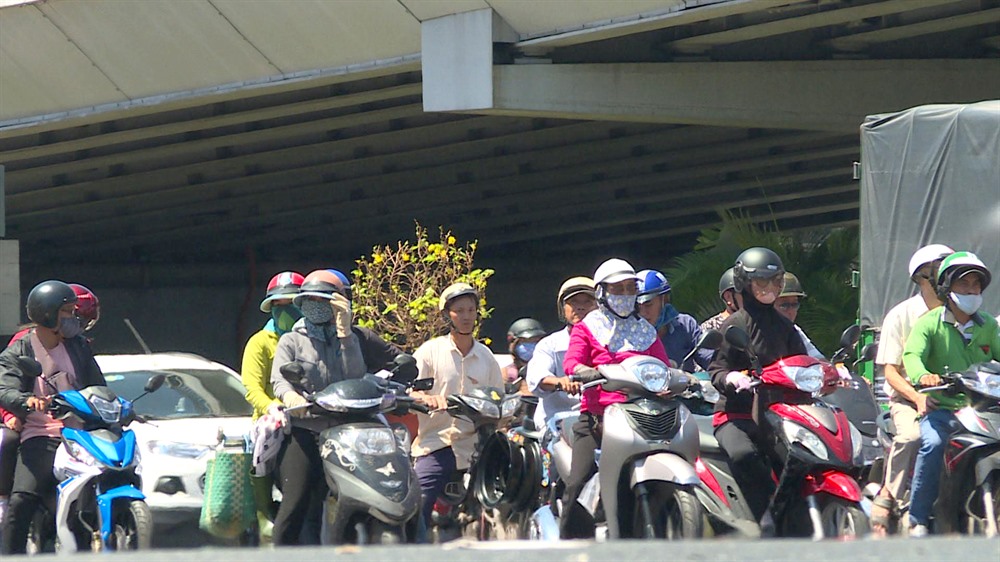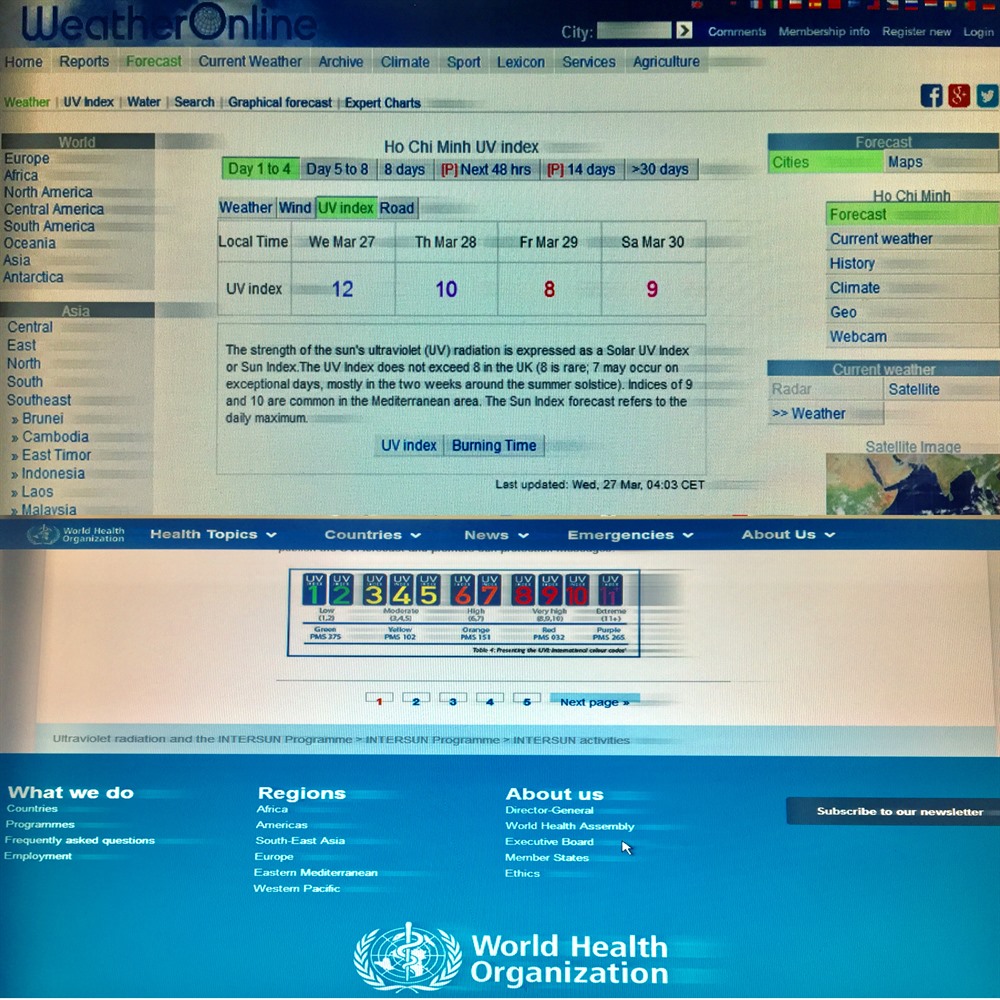 Society
Society

The ultraviolet (UV) radiation index in HCM City will remain at the high-risk level of 8-12 until the end of this week, according to Weather Online, a UK-based meteorological service firm.
 |
| Residents in HCM City protect their skin as the ultraviolet (UV) radiation index reached the high-risk level of 8-12 this week. — VNS Photo Ngọc Diệp |
HCM CITY — The ultraviolet (UV) radiation index in HCM City will remain at the high-risk level of 8-12 until the end of this week, according to Weather Online, a UK-based meteorological service firm.
The UV Index (UVI) in the city on Tuesday and Wednesday reached 12 and is expected to be 10, 8 and 9 levels for Thursday, Friday and Saturday, respectively.
The UVI, developed by the World Health Organisation (WHO), the UN Environment Programme and the World Meteorological Organisation, is a measure of UV radiation.
The index ranges from zero upward. The higher the UVI, the greater the potential for damage to the skin and eyes.
A UV index of 6 and 7 is considered “high”, 8 to 10 "very high", and 11 and more "extreme", according to the WHO.
UV radiation is strongest between 10am and 4pm.
The average temperature in the southern region, including HCM City, since Monday has been 35-37degrees Celsius, according to the Centre for Hydro-Meteorological Forecasting in the Southern Region.
The hot weather is expected to continue for several days followed by lower temperatures.
However, in early April, the southern region will experience a new heat wave, the centre said.
Nguyễn Trọng Hào, director of the HCM City Hospital of Dermatology-Venereology, said that exposure to extreme UV rays could cause both immediate harm (burned skin) and long-term effects (cancer or aging skin).
UV rays can also damage eyes, especially those not covered by eyeglasses or sunglasses. Visual disturbances such as vision loss, seeing halos around light sources or tearing could occur with overexposure.
“The elderly and children are among the high-risk groups affected by heat stroke,” he said.
Heatstroke can lead to headaches and dizziness, a fast heart rate, fatigue, cramps and dehydration.
People should not go outside when UV radiation is the strongest, and should drink plenty of water on hot days, experts said. A sunscreen, a broad-brimmed hat, long-sleeved clothes, sunglasses and masks should be used.
WHO encourages people to reduce their sun exposure. The incidence of skin cancer in fair-skinned populations worldwide is strongly associated with excessive UV radiation exposure from the sun and possibly artificial sources such as sunbeds. — VNS
 |
| The UV index will remain at a high level until Sunday in HCM City. — A screen capture from the UK-based Weather Online and World Health Organisation (WHO) websites |